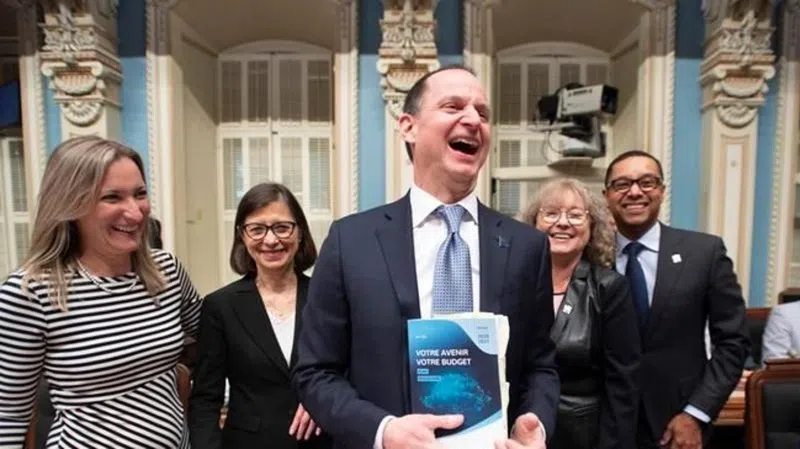
Highlights of Quebec’s 2020-21 budget
QUEBEC — Finance Minister Eric Girard tabled the Coalition Avenir Quebec government’s budget on Tuesday. Here are some highlights:
— Balanced books for the sixth straight year in Quebec, with a forecast surplus of $2.7 billion on total revenue of $121.3 billion, including $25.7 billion in federal transfers. The surplus will go into a fund aimed at lowering the province’s debt.
— Estimated gross debt of $197.7 billion as of March 31, 2020. That represents 43.0 per cent of gross domestic product, continuing a downward trend from a peak of 54.3 per cent six years ago.
— Expected economic growth of 2.0 per cent in 2020 and 1.5 per cent in 2021, down from 2.8 per cent in 2019.


